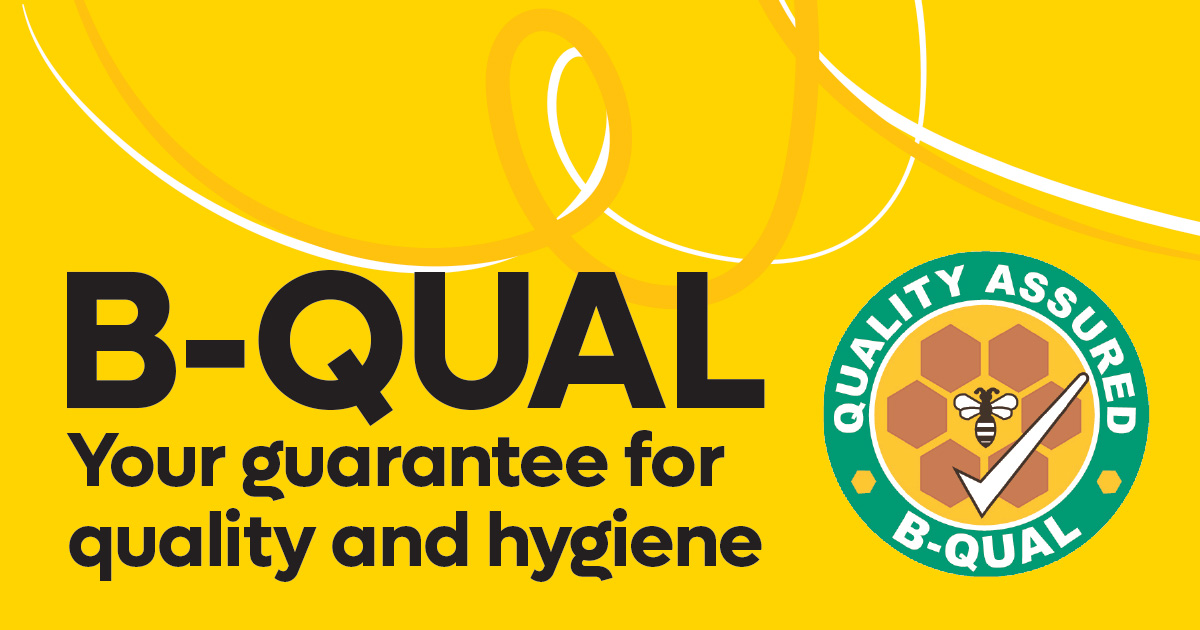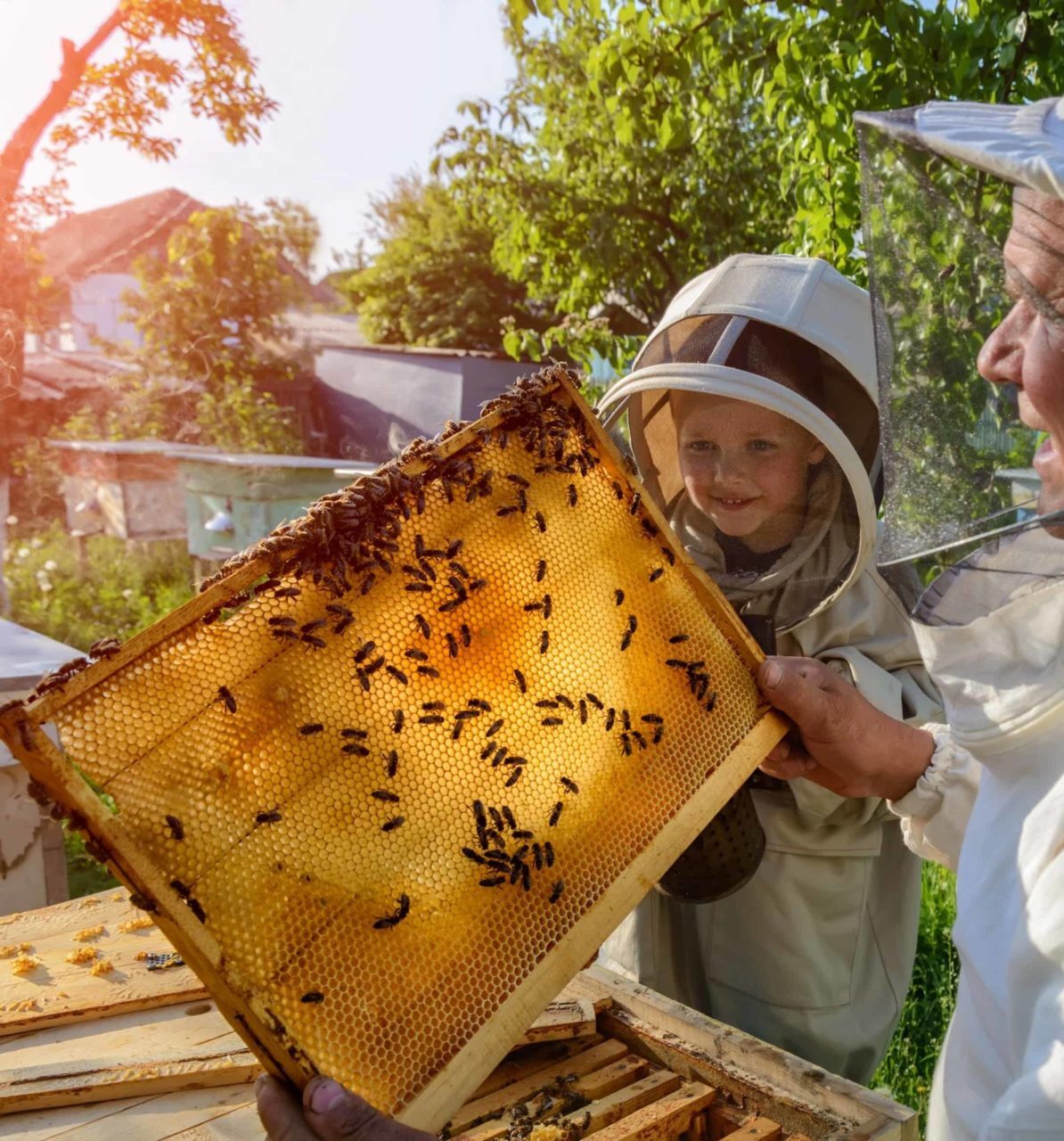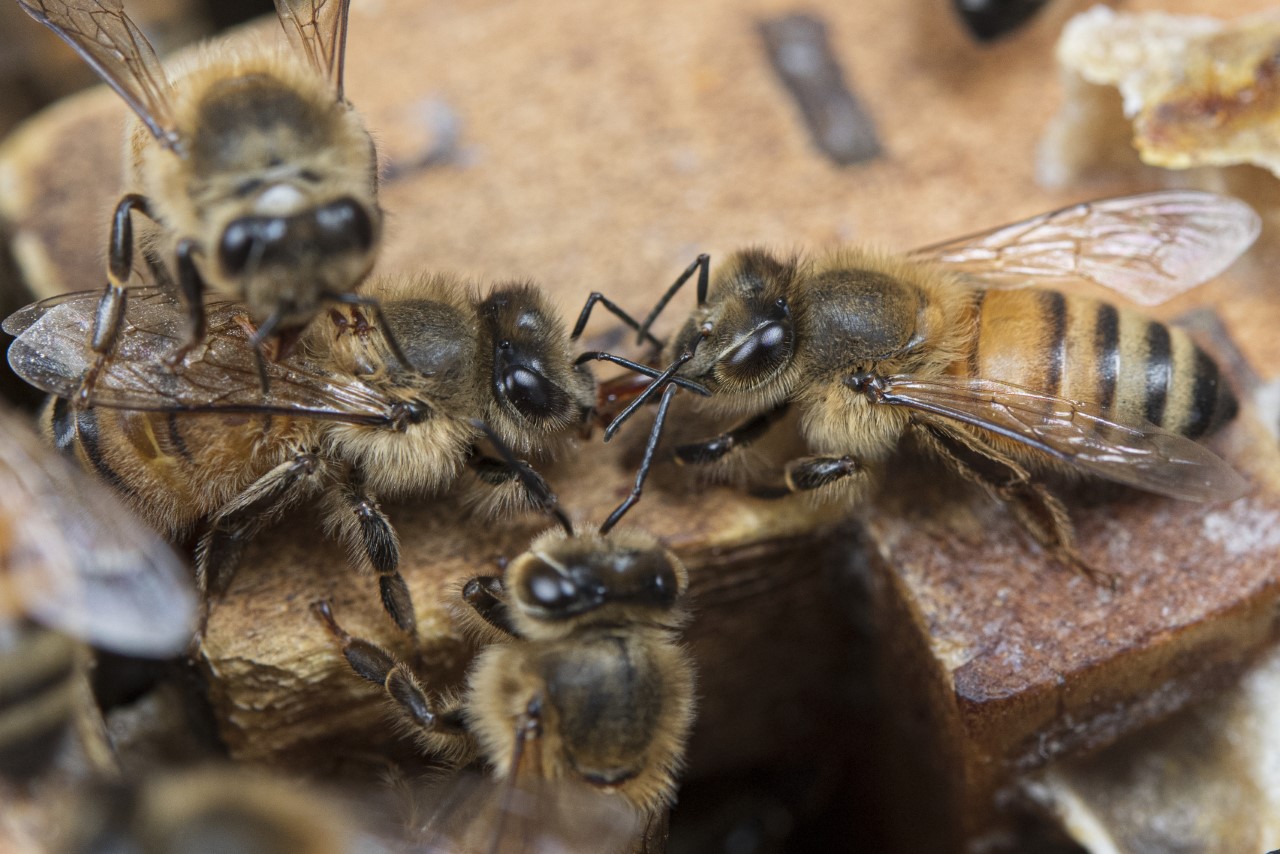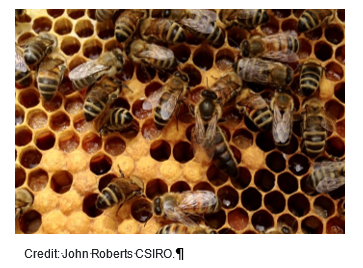Friends of AHBIC
If you aren’t already a Friend of AHBIC, we welcome you to join our group of organisations and individuals who are supporting Australia’s national beekeeping industry that supports you.


If you aren’t already a Friend of AHBIC, we welcome you to join our group of organisations and individuals who are supporting Australia’s national beekeeping industry that supports you.

B-QUAL is an Industry Owned Quality Assurance System for Australian beekeepers.
How does B-QUAL certification benefit my business?
B-QUAL Certification also enables an enterprise to market its product under the B-QUAL logo to show that it meets the B-QUAL Industry Standards.
Complete your training at home at your own pace.
For more information and to obtain a Certification Information Pack, contact the B-QUAL Certification team.
www.bqual.com.au
B-QUAL Pty Ltd
Phone 07 49949820
Email: admin@bqual.com.au

The specially designed app will assist in maintaining hive record information that satisfies the requirements of the National Biosecurity Code of Practice. The program is intended for small commercial and recreational beekeepers who sell honeybee products direct to:
The low annual fee includes the use of the hive management app and an annual desk audit.
For further information go to www.btrace.com.au


Happy new year! Hopefully this year will be filled with greater honey prospects than the last!
On behalf of our Chair and the board we welcome Bianca Giggins to the newly created Varroa Coordinator role. Bianca is a valuable addition to the AHBIC team and will assist AHBIC in all things Varroa and communications moving forward. We are thankful to the Federal Department for Agriculture, Fisheries and Forestry for providing assistance in funding the new role.
Despite having a short Christmas break it has still been a busy month. The Varroa response continues to consume a lot of AHBIC’s time with the daily briefings and AHBIC having an active functional role as Industry Liaison Officer. Participation and negotiations for the CCEPP and NMG meetings just prior to Christmas resulted in agreement to continue the response funding with the next decision point being March/April. The response is in a strong position with national recognition of Blue Zone Freedom giving the industry confidence that eradication is possible. States are gradually reducing the restrictions for cross-border movements giving desperate beekeepers some business continuity again.
As directed at our last AGM we have finally been able to start working on getting the many subcommittees established and moving.
The levies committee met late last year with more meetings scheduled to work on a range of levy related issues including investigating a marketing levy and pollination levy. The imported honey committee is being established and will meet in February to work on a strategic plan to combat imported honey. The AHBIC review committee is also being established to look at ways to implement the recommendations of the Ball report and make further recommendations to the executive to improving the sustainability of AHBIC. The established subcommittees including the education, resources and biosecurity will all have meetings scheduled for the first half of the year.
The AHBIC strategic plan comes to an end in 2023 and the executive are meeting in late February to workshop the skeleton of a new strategic plan. The workshop should provide a first draft that we can take to industry for input before finalising.
We continue to test imported honey from Australian shelves looking for adulteration. If testing results identify adulteration AHBIC then pursues this with the authorities to have it removed.
Early in 2022 AHBIC was made aware of a large hardware chain selling beehive equipment online. This equipment included pre-wax plastic foundation. AHBIC has been in communication with the hardware chain requesting testing results of the wax and highlighted the biosecurity regulations in shipping honey bee products around Australia. As a result, the hardware chain has since removed the product for sale.
I look forward to the year ahead and to strengthen our partnerships and continuing to build a strong and resilient honey bee industry. As an industry, we have had everything thrown at us over the last few years, hopefully we as an industry can have a more prosperous year in 2023.

G’Day,
I am Bianca Giggins the newly appointed Varroa Coordinator (VC) for AHBIC. Supported with funding from DAFF, I have come onboard to assist AHBIC the Varroa incursion.
I am based in the NSW Hunter Valley, at the heart of the incursion and I have been surrounded by agriculture my entire life, coming from family farming in both dairy and meat chickens. I took up beekeeping 10 years ago, completed the Certificate III in Beekeeping in 2017, I have been operating that small business for about 5 years alongside other full-time work.
I have previously been employed at NSW Department of Primary Industries in two roles, one as Varroa Surveillance Coordinator and prior to that Honey Bee Training Coordinator for the Certificate III Beekeeping at Tocal College.
As part of my VC role, I will be sharing my passion for beekeeping industry in many different ways throughout the year. I believe industry must tackle the challenges together with a collective mindset and a Nationally unified approach that leaves no stone unturned when it comes to aiming for industry success. Engagement and discussion with beekeepers, will be high on my agenda, alongside continuing AHBIC’s involvement in the Varroa Response, industry education and research, including several aspects to help our industry professionalise their business in efficiencies, record keeping, resource access and pest and disease management.
My time in industry has been short, but the time I have invested in beekeeping has been intensive and very rewarding. I’m excited to grow and strengthen what I know about beekeeping along the way and maintain a strong voice for industry in all that I do as VC for AHBIC. You’ll see I am really looking forward to achieving great things the next 12 months, working alongside the CEO to support beekeeping industry through the next phase of the Varroa Response.
You can contact me to discuss your beekeeping concerns or to have a chat about anything bee related that you believe myself or AHBIC can assist you with.
Email: bianca@honeybee.org.au Mobile: 0402 467 780

By Georgina Binns BZool – MConsBiol – MRes
Researchers plan to provide bees with immunity-boosting probiotics to increase defence against common infections.
Researchers at Macquarie University are developing an economical and chemical-free probiotic treatment to help boost resistance of honeybees – in the hopes of increasing resistance to common bacterial and fungal hive diseases that are the main causes of global population declines. Infectious diseases, such as European foulbrood and chalkbrood, cause devastating impacts on crops and honey production from the loss of pollination services.
Probiotics are made from beneficial microorganisms that have health benefits when ingested – these are found to naturally occur in products such as yoghurt and other fermented consumables. Probiotics have been found to maintain digestive heath and boost the immune system in humans when taken as a dietary supplement. Because these ‘good bacteria’ are naturally occurring, they will not be dangerous to bee health, with the research team specifically targeting bacteria essential to honeybees.
Existing bee probiotics only target one disease at a time, but the team aims to develop a general probiotic that will raise the overall immunity of bee colonies. “Multiple diseases can infect hives simultaneously, and it is challenging to predict which disease might spread across hives. Our team will create a broad-spectrum approach to disease resistance instead of looking at just one singular infection,” says Dr. Fleur Ponton, an expert on gut microbial symbionts. Probiotics are chemical-free and cost-effective products for Australian beekeepers and growers that can be easily implemented into their systems.
The Australian Honey Bee Health Survey 2019 reported that commercial beekeepers lost an estimated 19% of hives during the previous year due to diseases, pests and other events. This loss translates to significant economical deficiencies for Australian growers of pollination-dependent crops, such as macadamias, almonds and avocados, with 65% of Australian agricultural production relying on pollination by bees. “With climate change and invasive bee pests becoming more present, we need to find solutions to protect our honeybees here in Australia. We can’t solve everything, but a generic probiotic would be an important boost to Australian honeybees’ health,” says Dr. Théotime Colin.
The research team, led by Dr. Fleur Ponton and including insect and bee experts Associate Professor Ajay Narendra, Dr. Théotime Colin and microbe expert Dr. Sasha Tetu, will look at a variety of ways to deliver the right probiotic mix to hives. “We are aiming to include probiotics into healthy supplemental feeds for bee colonies. Feeding colonies is a common practice already in place in many countries but that is less developed in Australia,” Dr. Ponton says. “Beekeepers in Europe, Africa and North America often feed supplemental food patties containing pollen, vegetable proteins and sugar mixtures to hives. These mixtures do not usually contain probiotics just yet.” Further, this project will assemble a collection of probiotic strains that will be stored in the team’s lab at Macquarie University. In the future, these strains could be tested against new emerging diseases.
Stressors such as pesticides, parasites and diseases affect how well bees pollinate crops because it affects their memory. Bees need to navigate from their hive to the food crop and back, which means they need to remember how to find the hive. How well they learn their way back to the hive contributes to the success of their colony and their pollination services. “We know that gut health affects memory and learning abilities in other animals and even humans,” says insect neurobiologist Dr. Ajay Narendra. “Every day, bees come out of the hive and search for food,” he says. “Once they are loaded up with nectar or pollen, they must find their way home, otherwise they will die.”
Georgina Binns is a Research Officer at the Ponton Lab, School of Natural Sciences, Macquarie University, Wallumattagal Campus, Sydney, Australia

By John Roberts
Honey bees are an important part of the ecosystem and culture of Norfolk Island. Honey bees support food security through reliable pollination services as well as producing honey and hive products. Having access to up-to-date information on bee pests and diseases is critical to maintaining the Island’s bee biosecurity.
In December 2022 and April 2023, Dr John Roberts of the Commonwealth Scientific and Industrial Research Organisation visited Norfolk Island to conduct surveys of the honey bee population. Under the guidance of Norfolk Island’s beekeepers, Dr Roberts collected samples from bees, honey and hives to test for pests and diseases. He sampled 67 bee colonies (approximately 50% of all managed colonies) and inspected and tested for 16 pests and diseases.
The key findings of the survey are:
The report made three recommendations:
The relevant Government agencies are considering these recommendations.
This project was funded by the Department of Infrastructure, Transport, Regional Development, Communications, and the Arts. Support was provided by The Department of Agriculture, Fisheries and Forestry and Plant Health Australia.

If you aren’t already a Friend of AHBIC, we welcome you to join our group of organisations and individuals who are supporting Australia’s national beekeeping industry that supports you.